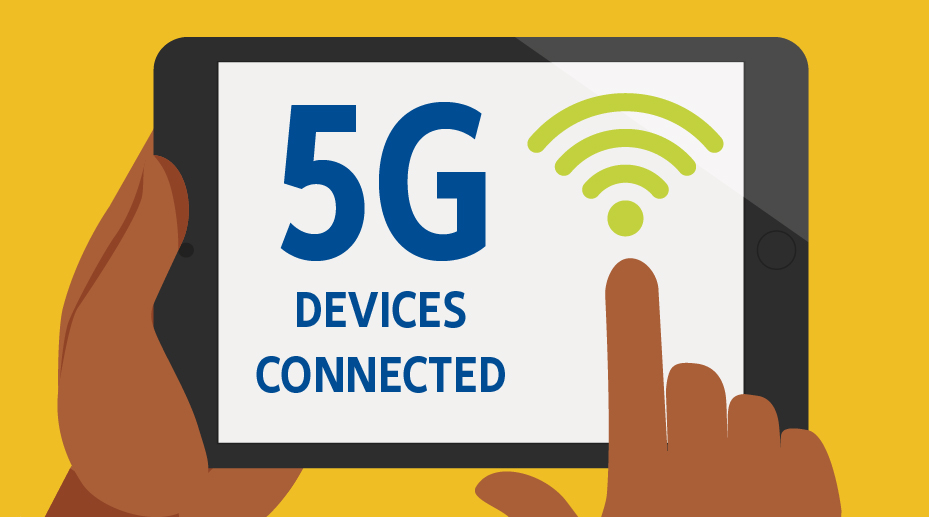According to Cambridge Wireless1, 5G has the potential to stimulate $13.2 trillion in global sales activity by 2035 and the number of connected devices will reach 43 billion by 2023.

Our Allianz expert James Tucker, Transformational Propositions Manager looks at 5G and the difference to 4G, as well as what it will mean for smart devices and the industry applications.
What is 5G and what will it mean for connectivity?
How does 5G differ from 4G?

5G is a higher speed network which has more bandwidth so more devices can be connected and transfer more data at a higher speed (resulting in quicker point to point connections -lower latency) compared to an equivalent 4G network.
How will 5G impact businesses?
The smart factory, industrial Internet of Things or Industry 4.0 will exploit 5G for faster connections and more reliable connectivity. This allows faster decision making by automated processes, autonomous production, collaborating robots, and highly coordinated logistics. In addition to this, maintenance can be enhanced by the creation of identical virtual worlds in real time.
Many businesses are looking at the option of local 5G networks, which could be deployed across a large campus. One example of a business utilising this to create a smart factory is the collaboration between Ford and Vodafone, who are launching a 5G ‘factory of the future’ for electric vehicles. In this case, plant and machinery will be connected to high speed data right across the estate to optimise productivity and efficiency.

What does this mean for brokers and how can they advise their clients?

Will current insurance products just be developed or will new ones have to be created to support 5G?


Author
James Tucker
Transformational Propositions Manager
Allianz UK
As Transformational Propositions Manager, my job is to help with the development of new disruptive propositions for our customers at Allianz. I provide both strategic and technological input as well as, manage the various projects and proof of concepts we are running.


2-06.jpeg)

